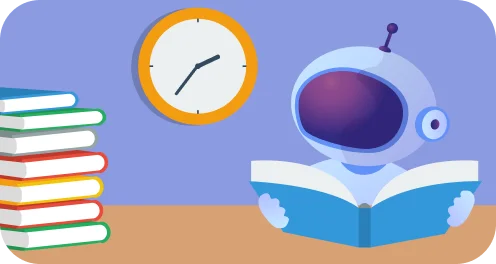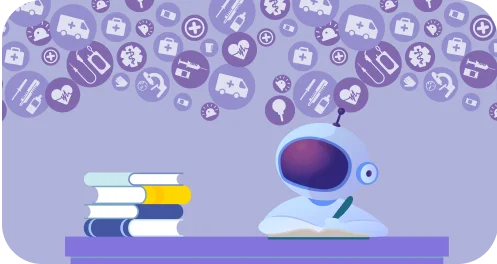What outfit to choose, whom to take to the prom, whether to go to college, what to major in, dorm or rented apartment, break up or stay in long-distance relationships with your high-school sweetheart? Life is a barrage of decisions, each one harder than before.
Some psychologists even believe that having to make lots of decisions every day can lead to "decision fatigue." According to Dr. Alice Boyes, if you avoid making small decisions, you will procrastinate and refrain from important decisions, for example, staying in or breaking a relationship or investing money in some project. As a patented procrastinator, let me tell you: it's absolutely true.
However, it can be helped! There are many decision-making tools and techniques one can employ to take the dread out of choosing. If you, like myself, are a waverer, this post is for you. Let me share some tips that have made my life so much easier.
Make reversible decisions fast
Jeff Bezos, someone, I trust, you know as a person making some brilliant decisions, has a simple rule of thumb for you. You should decide whether this decision is a big one or a small one. Then you allot your time and effort accordingly. Instead of agonizing over something insignificant, just make the decision quickly and save the energy for the big stuff. "Big" in this case means something that has a significant impact on your finances, health, relationships, reputation, or other critical areas of your life.
Not all small choices are as petty as picking a shower gel or a side salad for lunch. Some small decisions may seem significant. For example, where to go for a vacation, which apartment to move into, which course to sign up to, etc. However, Bezos classifies as "small" anything reversible. That is, you can back out on it with no harm done if it isn't working out after some days, weeks, or months. Alternatively, you can afford to try another option later. For example, you can drop a course, move to another neighborhood, or buy another pair of shoes if this one won't quite fit your style. If this is the case, don't ponder over it for too long and just try something out.
Figure out what you want in life
Okay, this sounds a bit cliché, but it is vital. Making a big decision is like taking a turn on the road. How do you know which one to take if you don't have a map or don't even know your destination? To be confident in your decisions, you must put them in a broader context of your goals in life.
Where do you want to be in five, ten, twenty years? Do you want a house, a family, and a steady job? Or does a life of adventure and roaming the world appeal more to you? There is no right answer. The important thing is what you want. When you know your goal in your heart, each decision will bring you closer to it – and come easy.
Weigh the risk against benefit
Some experts advise writing down the pros and cons of every option to help you make a well-balanced decision. However, Tim Ferris, an investor and author of five #1 NYT/WSJ bestsellers, believes it's not very productive. You will only end up with a laundry list of things that are difficult to compare. The more efficient variation of this exercise is assessing risk to benefit ratio.
You write down what you can lose in the worst-case scenario and what you can gain in the best-case scenario. Then you compare. "If the downside is capped […], you know at least your maximum losses," says Ferris. If the figure is asymmetrical, with huge benefits and moderate risk – then it's a green light. For example, you think about whether you should apply to Dartmouth. What are the risks? Spending some time crafting the essays and losing the $80 application fee. The benefits? Possibly getting a place in one of the most beautiful and inclusive need-blind Ivy League schools. A no-brainer! If it's the other way around, with limited benefits and too many risks, it's a big no.
However, I must add that people are often too optimistic. They hope for more benefits than is realistic and tend to downplay the risks. That is why it is important to follow through to the next step.
Find more information
Making an informed, data-driven decision is vital. The bigger the decision, the more critical it is to base it on hard facts and statistical probabilities. Sometimes you cannot decide because you don't have enough information to compare and contrast your options – so do your homework!
If it's something not purely financial but personal and lifestyle-related, ask someone who knows about this stuff. For example, you cannot decide whether you should take a bigger sum in a student loan or find a job to support yourself while you study. Get in contact with senior students or alumni. Seek second and third opinions.
Imagine you are giving advice
This is a brilliant technique for people who, like me, tend to get tangled up in strong emotions like fear and excitement when making a decision. Imagine it's not you making a decision, but your friend and she asks you for advice.
Visualize this situation. How would you see this choice as an outsider? How would you want your friend to see it? Imagine what you would tell her. This is very helpful since it takes you out of the situation, making your judgment more objective.
Trust your gut instinct
Some experts, like life coach Susie Moore, believe that being more decisive really boils down to being fully aligned with yourself and trusting your gut. "Logic has a place in the world… but the most important decisions in life are seized by instinct," she says. However, the trick is to discriminate between your genuine intuition and hidden desires that seek a sneaky way to thwart common sense.
For example, if you weighed all the pros and cons and logic says you should go ahead and make an expensive purchase, but you still feel deep inside that something is off, then maybe you should listen to your intuition. On the other hand, if you are thinking, "I really should sit down and write my essays, but my intuition tells me that going to that party will be life-changing!" that probably means that you are avoiding work and seeking instant gratification. Not that I'm not guilty of the same thing – a hundred times over. Just don't abuse your intuition to cover it up, okay?
Align your decisions with your values
We all sometimes make bad choices. That's life. Yet if on top of that you know your choice went against your values, that's when you really regret it. Make sure you always stand by your values when in doubt. For example, you failed a test because you spent the day before helping out your friend instead of revising. Tough, but at least you know you did the right thing.
If, however, you screwed someone over to get to an invite-only party, earn a quick buck, or get a hot date, and you got called out, that's bad either way. Even if you got what you wanted, your relationships and reputation suffered. As did your self-esteem, am I right or am I? If you go against your values, you end up kicking yourself for it. Just avoid these situations.
Choose whatever and don't look back
Most of us dread to finalize choices because we obsess over making "the right one." If only we had a time machine and could peek into the future created by either option. That would be reassuring! Without such means, however, we are doomed to spend our lives in a limbo of "what ifs." Or are we?
Maybe, if you are paralyzed and cannot decide, each option is just as good as another. In that case, just commit to something and don't spend any more time trying to imagine where an alternative route would have taken you. This is not a sci-fi movie. You only have one version of life, and every decision you make is the right one – because it takes you where you are now, one step at a time. Sometimes it makes your life better. Other times it teaches you something so you can make better decisions in the future. Anyway, there is nothing sadder than living in regret. Take a leap of faith and don't look back. Embrace your decision, line up with it. Your life will rearrange itself to make it the right one.
I hope you will find some of these tips helpful and become more confident with your decisions. Take care and keep a positive attitude!










